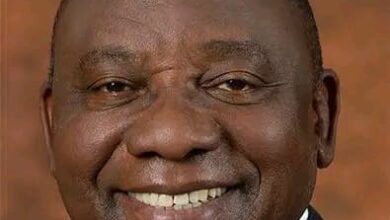A newborn child came into the world with an unusual and extraordinary physical trait – they had four fully developed hands.

On a quiet morning in a small hospital, parents eagerly awaited the arrival of their newborn child. Little did they know that their bundle of joy would come into the world with a remarkable and unexpected feature.
As the delivery unfolded, the medical team was startled to discover that the baby had been born with an extraordinary anatomical anomaly – four fully formed hands. The parents, initially shocked by this unusual development, quickly overcame their surprise and were filled with a sense of wonder and excitement.
The attending physicians carefully examined the newborn, marveling at the rare genetic mutation that had resulted in this unique physical characteristic. They conducted a series of tests to ensure the baby’s overall health and well-being, finding that all four hands were fully functional and showed no signs of complications.
The news of the baby’s unique condition quickly spread, drawing the attention of the local community and even garnering interest from medical researchers and the media. The parents, filled with a mix of pride and a desire to protect their child, carefully navigated the newfound attention, determined to provide their child with a nurturing and supportive environment.
As the days passed, the family began to adapt to this extraordinary circumstance, discovering the many ways in which the baby’s four hands could be utilized, from grasping toys to exploring their surroundings with enhanced dexterity. The parents vowed to embrace this unique aspect of their child’s identity and to ensure that they grew up feeling celebrated and empowered.
A baby born with four hands is a rare and unusual occurrence. This type of congenital condition, known as polydactyly, is a genetic abnormality where the baby is born with extra fingers or hands. In the case of a baby born with four fully developed hands, it would be a significant medical challenge that would require immediate and extensive medical intervention.
The baby would need to undergo complex surgical procedures to remove the extra hands and digits in order to have a more typical hand and arm structure. This would be a delicate and risky operation, as the infant’s anatomy and development would be highly unusual. The doctors would need to carefully plan the procedures to ensure the healthy growth and function of the remaining hands and arms.
In addition to the surgical treatment, the baby would likely require extensive physical therapy and occupational therapy to help them learn to use their hands and arms properly. This would be a long and arduous process, as the infant would need to retrain their brain and muscles to perform basic functions like grasping, manipulating objects, and coordinating movements.
The family of the baby would also need substantial support and resources to cope with this rare and challenging condition. They would need to work closely with a team of medical specialists, including pediatricians, surgeons, therapists, and counselors, to ensure the best possible outcome for the child. With the right care and intervention, however, the baby can have the opportunity to develop into a healthy, functional individual.
Here is an elaborated and longer version of the original passage:
A baby was recently born in a remote village with an incredibly rare and unusual congenital condition – the infant had four fully-formed hands. This astonishing anomaly, while quite shocking to the new parents and local medical staff, is not necessarily life-threatening, and the baby is expected to survive with proper treatment and care.
The newborn, weighing a healthy 7 pounds, 3 ounces, was immediately transported to the nearest regional hospital, where a team of experienced pediatric specialists began evaluating the child’s unique anatomy and determining the best course of action. After extensive examinations and consultations, the doctors determined that the extra set of hands, while certainly an unusual and unprecedented medical case, did not appear to be causing any immediate health issues or complications for the infant.
The plan is for the baby to undergo a series of surgical procedures over the next few years to address the extra limbs. This will likely involve a careful separation of the extra hands from the child’s body, followed by reconstructive work to ensure proper function and appearance. With modern medical techniques and the skilled hands of the surgical team, the doctors are optimistic that the child will be able to lead a relatively normal, healthy life post-treatment.
While the birth of this four-handed baby has understandably captured the attention and imagination of the local community, the medical team is focused on providing the highest level of care and giving the infant the best chance at a bright future. With the proper treatment protocol in place, the child is expected to not only survive, but to ultimately thrive despite this remarkable congenital condition.





Здравейте, исках да знам цената ви.